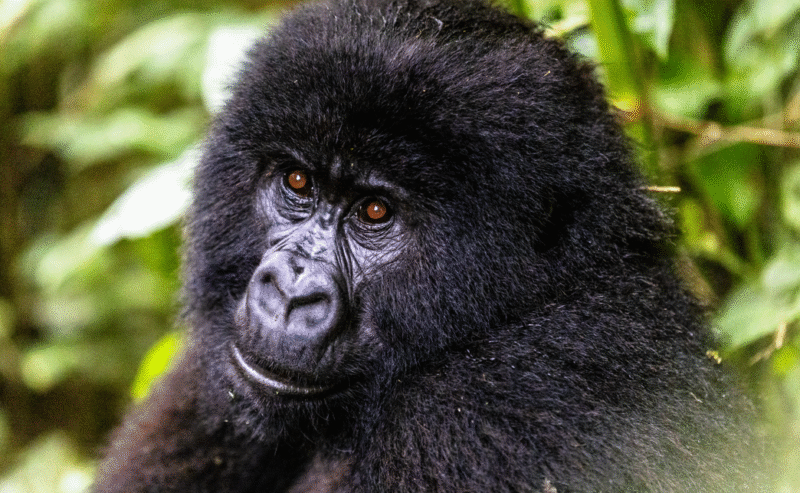
Support Virunga this Giving Season >
For the past two years, Virunga’s Rangers have been severely restricted in their ability to monitor and track the endangered mountain gorilla population due to ongoing hostilities between armed groups and the Congolese army. To maintain oversight of the gorillas, the Park has trained a network of community trackers: members of the local community who live around the gorilla sector of the Park.
Without regular Ranger patrols the threat to the mountain gorillas has increased significantly, exposing the gorilla population to greater risk of snare traps, poaching and human transmitted disease. 110 community trackers enter the gorilla sector each day, and they will now undertake a comprehensive welfare assessment of the gorillas, reflecting the commitment of local communities and the collaboration between local people and the Park to support the continued recovery of the mountain gorilla population.
Despite the conflict and heightened risks faced by Park staff, indications suggest that the mountain gorilla population is continuing its steady rebound. 10 mountain gorilla births have been registered in Virunga in 2024, and the mountain gorilla population has steadily grown to well over 1,000 individuals (from a low of just over 350 in the 1980s), about a third of which reside in Virunga National Park.

(From left to right: Nyabigoro from Munyaga Family, Gato from Nyakamwe Family & Kakule from the Humba Family with their newborns)
Commenting, Jacques Katutu, Head of Gorilla Monitoring at Virunga National Park, said:
“The brave work of Virunga’s community trackers is critical to protecting the mountain gorilla population in the midst of the current conflict and multiple threats, and to prevent a reversal in the steady growth of the population that we have witnessed in recent years.”
The ongoing conflict in eastern Congo has taken a huge toll on local communities. Instances of arbitrary killings, sexual violence and mass displacement have increased sharply since October 2022. The most recent estimates suggest 2.8 million people are now displaced in North Kivu province alone. Virunga National Park is at the centre of efforts to provide humanitarian relief to local communities, including utilising the Park’s hydropower plants to maintain the pumping stations that deliver clean water to the 1 million internally displaced people living in dire conditions around the Park.
The mountain gorilla population remains highly vulnerable to the potential transmission of human diseases, including the current Mpox virus in the region. While there has never been a suspected or confirmed case of Mpox in human-habituated gorillas, scientists suggest that it is highly likely that gorillas are susceptible to the disease, reinforcing the urgent need to assess the welfare of the mountain gorilla population and limit human presence in the mountain gorilla sector.
Virunga National Park’s network of community trackers has been funded by the EU, USAID and the UNESCO World Heritage Centre, and its international community of online donors.
For more information or interview requests, please contact [email protected]
Support the vital work of Virunga’s community trackers and get exclusive updates on our upcoming mountain gorilla welfare assessments.